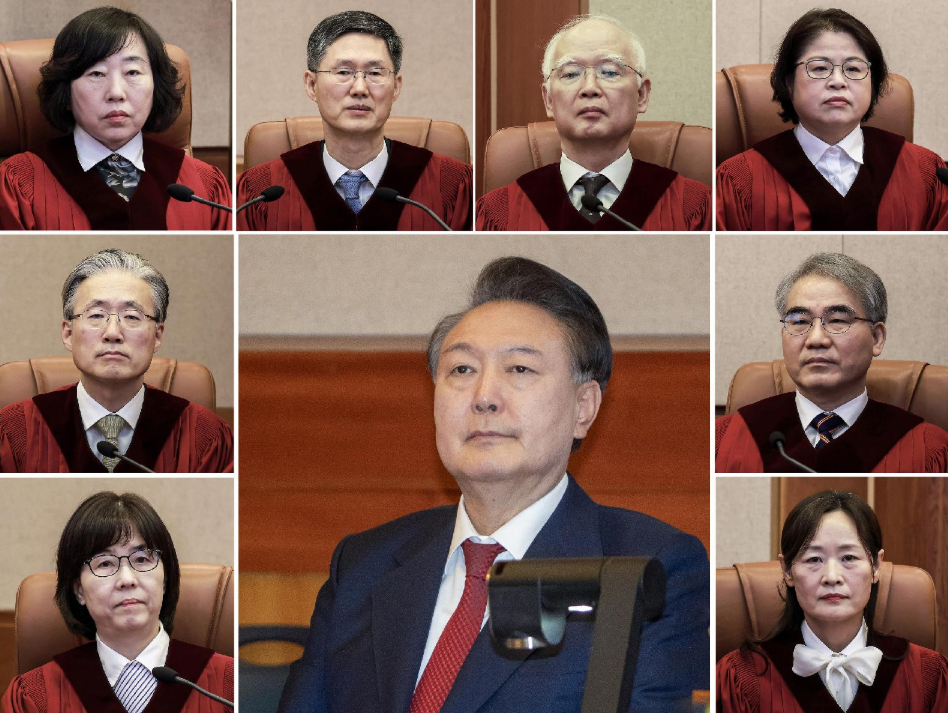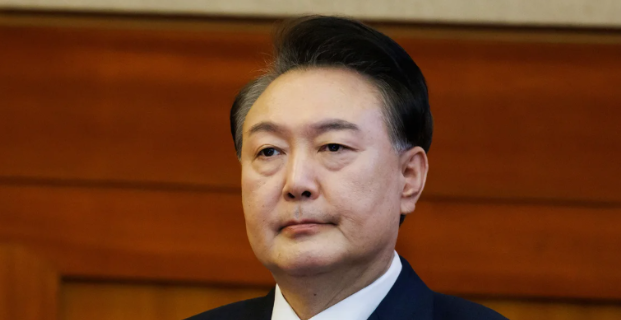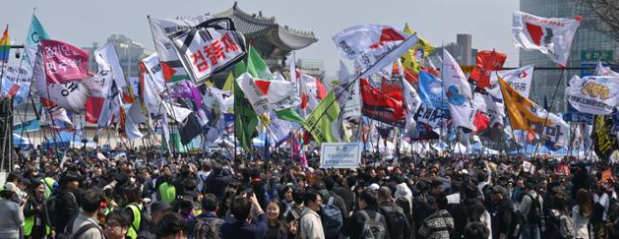
When the Constitutional Court decided to dismiss President Yoon Suk Yeol today, major foreign media outlets also quickly reported in major articles.
“President Yoon was fired four months after sending troops to the National Assembly to disrupt the country in a frustrated martial law attempt to break the legislative deadlock,” the Associated Press said. “The decision was made unanimously.”
Reuters also reported, “The Constitutional Court of South Korea has dismissed President Yoon,” adding, “It cited the impeachment of the National Assembly in connection with the declaration of martial law that triggered the worst political crisis in Korea in decades.”
The U.S. daily New York Times (NYT) reported, “South Korea’s highest court has unanimously decided to dismiss President Yoon,” adding, “The way for a key U.S. ally to elect a new leader beyond the test of democratic security has opened.” The Washington Post (WP) explained, “Following public resistance and the National Assembly’s vote, the judiciary also expressed its intention to reject the first martial law attempt since democratization by President Yoon.”
The Guardian said, “The fear triggered by President Yoon’s declaration of martial law has been resolved by the dismissal,” adding, “This historical decision will be remembered as an important moment in the journey of Korean democracy.”
Foreign media also expressed a dark outlook that Korea’s political turmoil will not be easily resolved even after President Yoon’s dismissal.
“President Yoon’s declaration of martial law and impeachment have plunged the country into political chaos,” the Associated Press said. “Experts believe that national division will continue, with supporters’ protests intensifying.”
The political crisis, which also cast a shadow over negotiations with the U.S. Donald Trump administration, came to an end with the sentence, Reuters said. “It is unclear whether the political turmoil triggered by the declaration of martial law will ease.”
The WP predicted, “President Yoon’s short political career is over with the sentence, but it will not be the end of the chaos that Korea has experienced for months.”
“South Korea has suffered some of the worst wildfires and aircraft accidents in its history in the midst of a leadership vacuum, and has been hit with 25% tariffs from its key ally, the United States,” AFP noted.
Foreign media that watched the impeachment of former President Yoon Suk Yeol, which originated from the illegal martial law incident on December 3, said, “The vulnerability and resilience of Korean democracy were revealed at the same time.” In order not to repeat similar things, some advised that “restoring trust in democracy is an urgent priority.”

The New York Times (NYT) pointed out on the 5th (local time) that “Former President Yoon’s seizure of power (declared martial law) revealed the vulnerability of democracy” in an article titled “Democracy in South Korea, which beat a reckless leader.” Shin Ki-wook, head of the Asia-Pacific Research Institute at Stanford University, told the newspaper, “If the administration’s abuse of authority, weakened public trust, and polarization can occur in South Korea, which has long been considered a best example of the “third wave of democratization,” it means that the same can happen anywhere else under similar democratic challenges.”
He also said that the four months after martial law showed the resilience of democracy. “Democracy in Korea was never just given,” the New York Times said. “Democracy in Korea was achieved through torture, imprisonment and bloodshed against authoritarian leaders for decades.” The newspaper reported that this is why citizens immediately reacted to Yun’s deployment of troops to the precincts of the National Assembly on the day of his declaration of martial law by blocking soldiers with their bare hands.

The newspaper also evaluated these events as a victory for democracy created in the late 1980s. Daniel Snyder, deputy director of the Asia-Pacific Research Institute at Stanford University, said, “Former President Yoon’s response to the declaration of martial law showed the maturity of Korean democracy. In particular, the passion of young people who were born since the 1980s and experienced the risk of returning to dictatorial rule for the first time in their lives was remarkable.” “In the 1980s, martial law and tear gas caused many people to suffer,” said historian Alexis Dudden, a professor at the University of Connecticut. “Former President Yoon and his staff failed to read today’s Korea in some ways.”
The British economist paid attention to the tasks facing Korea after the martial law crisis. The media said, “Korea’s next president will have assignments such as healing social divisions, resolving economic uncertainties, and establishing relations with the Donald Trump administration.” The Guardian also warned, “If the vicious cycle of refusing to accept the election results against him continues, Koreans’ trust in democracy will completely collapse.”
EJ SONG
US ASIA JOURNAL



